
The Nephrons Medical Terminology 78 Steps Health
What is Nephron? A nephron is the basic structural and functional unit of the kidney. They are the microscopic structure composed of a renal corpuscle and a renal tubule. The word nephron is derived from the Greek word - nephros, meaning kidney. There are about millions of nephrons in each human kidney. Structure of Nephron

Simple Diagram Of Nephron
Describe the composition of urine. Label structures of the urinary system. Characterize the roles of each of the parts of the urinary system. Illustrate the macroscopic and microscopic structures of the kidney. Trace the flow of blood through the kidney. Outline how blood is filtered in the kidney nephron. Provide symptoms of kidney failure.

Nephron Diagram ANATOMY Pinterest Biology, Colors and Study guides
Can you Label the Nephron? By LebHead 20m 11 Questions 657 Plays - - Ratings hide this ad Forced Order PLAY QUIZ Score 0/11 Timer 20:00 Quiz Playlist Details Report Classic: Type in answers that appear in a list Forced Order: Answers have to be entered in order Last Updated: Jan 11, 2022 Quiz Scoreboard Sign Up to Join the Scoreboard

Kidney Microanatomy (Lesson) Human Bio Media
A nephron is the basic structural and functional unit of the kidneys that regulates water and soluble substances in the blood by filtering the blood, reabsorbing what is needed, and excreting the rest as urine. Its function is vital for homeostasis of blood volume, blood pressure, and plasma osmolarity. It is regulated by the neuroendocrine.
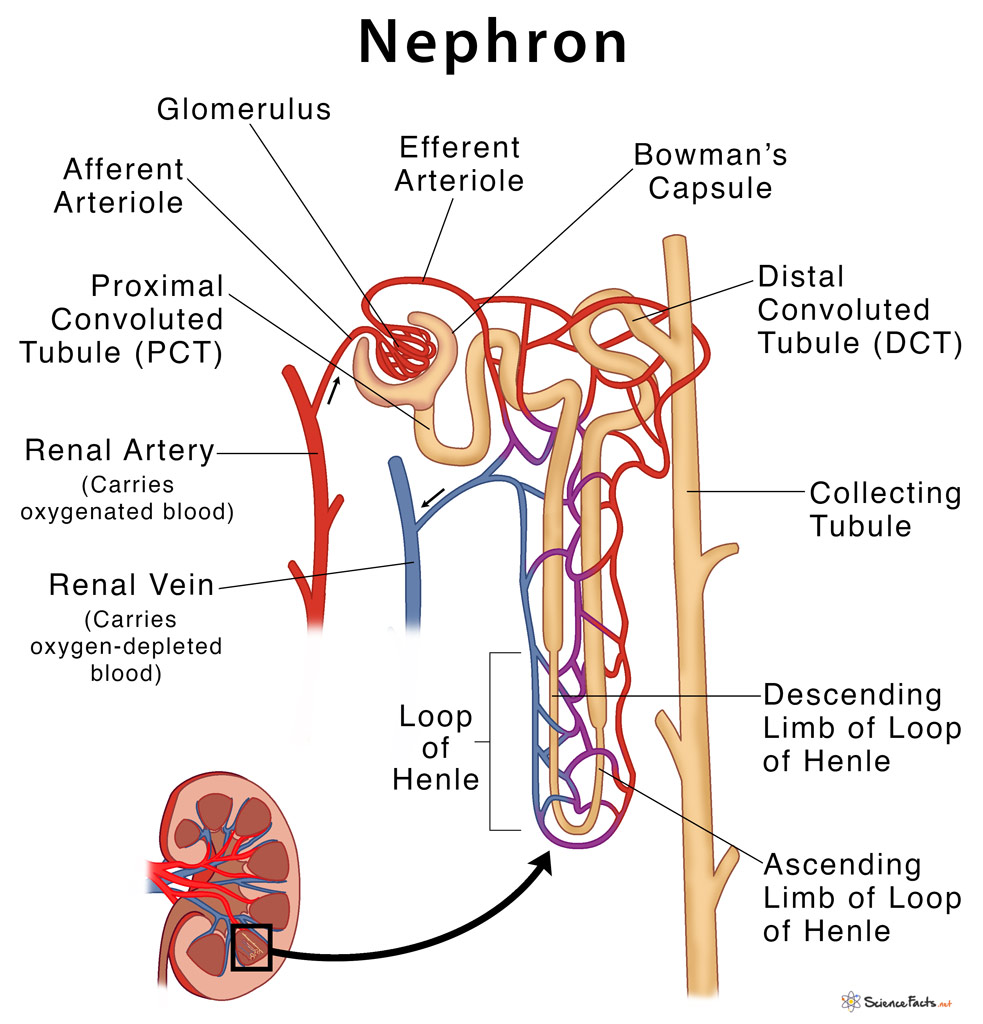
Nephron Definition, Parts, Structure, & Functions, with Diagram
Nephrons are the "functional units" of the kidney; they cleanse the blood of toxins and balance the constituents of the circulation to homeostatic set points through the processes of filtration, reabsorption, and secretion.

Kidney Nephron Model Labeled Medical things Kidney anatomy, Human
nephron, functional unit of the kidney, the structure that actually produces urine in the process of removing waste and excess substances from the blood. There are about 1,000,000 nephrons in each human kidney.
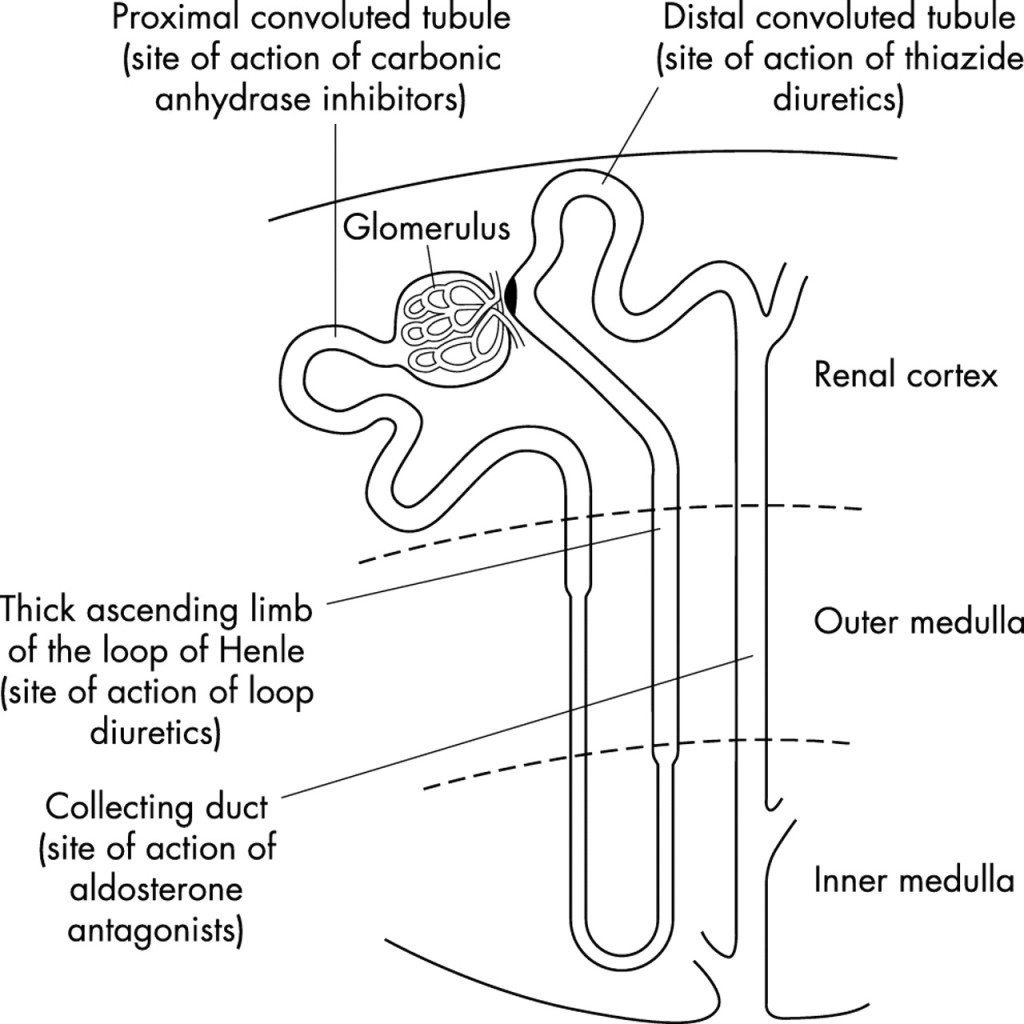
Nephron The Functioning Unit of The Kidney Interactive Biology, with
Practice labeling the nephron with this reinforcement activity. Students can also color the image to identify the major structures of the nephron: glomerulus, bowman's capsule, proximal and distal tubules, loop of Henle, collecting duct and capillaries.

Function of the Nephron Diagram Quizlet
Label a Nephron by ninalahoti 129,291 plays 16 questions ~40 sec English 16p 72 4.36 (you: not rated) Tries Unlimited [?] Last Played December 5, 2023 - 02:42 PM There is a printable worksheet available for download here so you can take the quiz with pen and paper. From the quiz author This is a nephron. Label it. Remaining 0 Correct 0 Wrong 0

Diagram of the nephron segments and its juxtaglomerular apparatus
A nephron is the basic unit of structure in the kidney. A nephron is used separate to water, ions and small molecules from the blood, filter out wastes and toxins, and return needed molecules to the blood. The nephron functions through ultrafiltration.
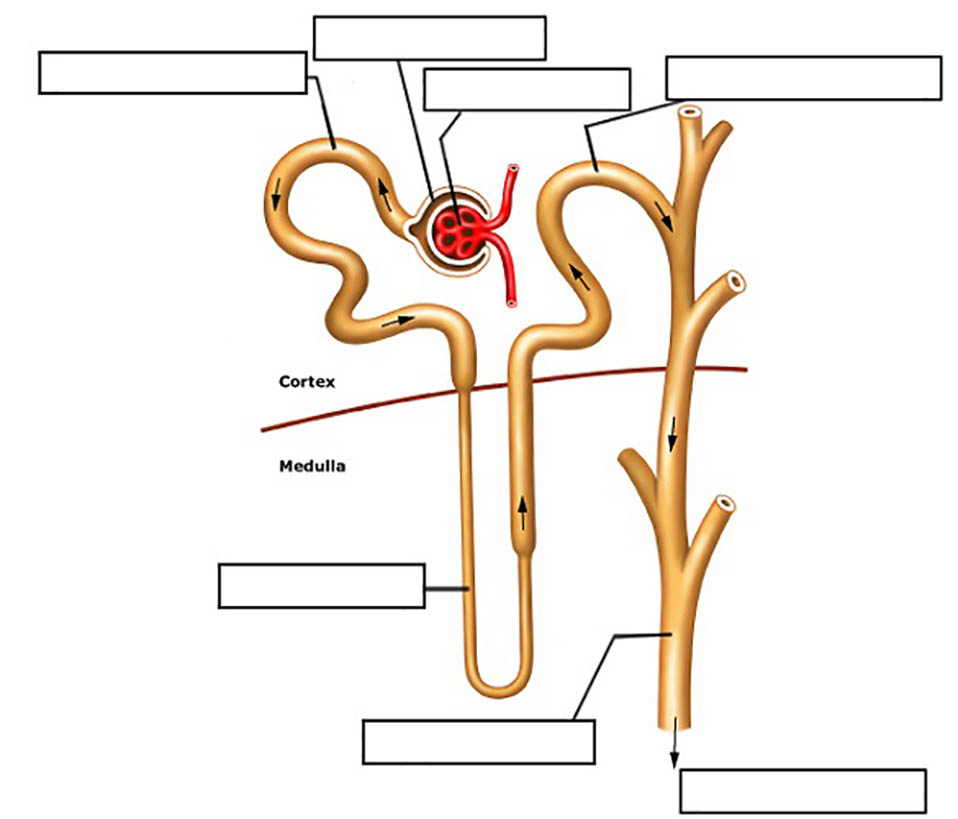
Urinary System Labeling
Structure Fig.1) Schematic diagram of the nephron (yellow), relevant circulation (red/blue), and the four methods of altering the filtrate. The nephron is the functional unit of the kidney. [2] This means that each separate nephron is where the main work of the kidney is performed. A nephron is made of two parts:

Associate Degree Nursing Physiology Review Human anatomy and
A nephron is the unit of structure and function in the kidney. Each nephron is a coiled tube held together by a tough fibrous connective tissue. In humans, a healthy adult has 1 to 1.5 million nephrons in each kidney, functioning together to filter blood from all its impurities.

Kidney Function and Physiology Biology for Majors II
The left kidney is located at about the T12 to L3 vertebrae, whereas the right is lower due to slight displacement by the liver. Upper portions of the kidneys are somewhat protected by the eleventh and twelfth ribs ( Figure 25.7 ). Each kidney weighs about 125-175 g in males and 115-155 g in females. They are about 11-14 cm in length, 6.

Nephron Definition, Structure, Physiology, Functions
The nephron is the functional unit of the kidney. The glomerulus and convoluted tubules are located in the kidney cortex, while collecting ducts are located in the pyramids of the medulla. (credit: modification of work by NIDDK) Tubular parts of a Nephron - converts the filtrate into urine The Bowman's capsule / Glomerular capsule:
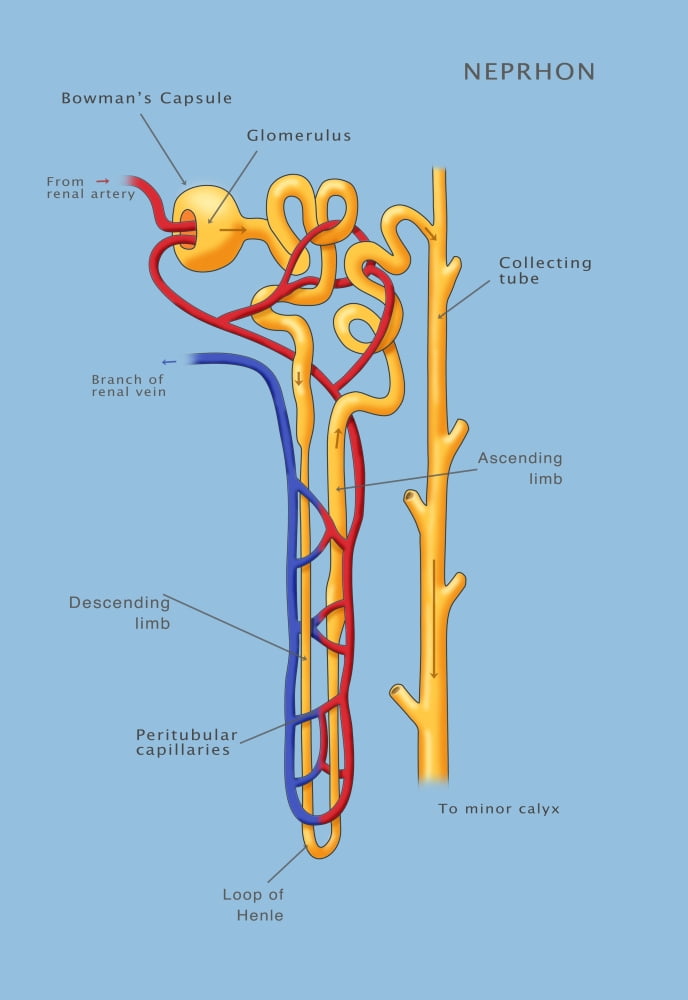
Nephron of the Kidney Illustration Poster Print by Monica
By correctly labeling the nephron diagram, you will gain a deeper understanding of the complex processes that occur within the kidney and the role that each component plays in maintaining overall health. Structure of a nephron. The nephron is the functional unit of the kidney, responsible for filtering and regulating blood to produce urine.
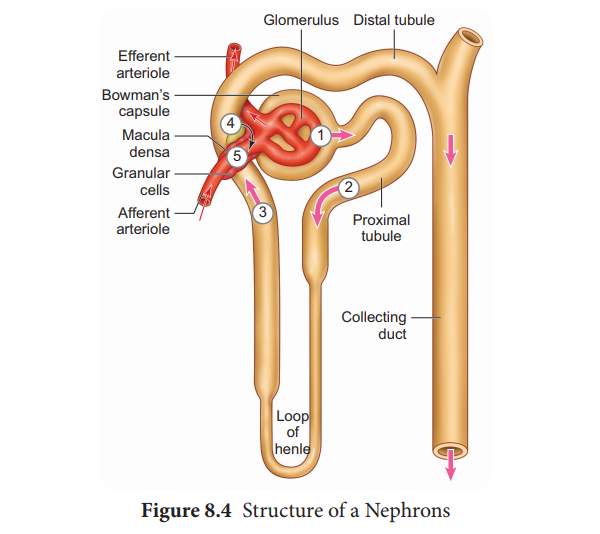
Structure of a nephron
1/4 Synonyms: Cortex renalis The kidneys are paired retroperitoneal organs of the urinary system. Their function is to filter blood and produce urine. Each kidney consists of a cortex, medulla and calyces. The nephron is the main functional unit of the kidney, in charge of removing metabolic waste and excess water from the blood.
Simple Structure Of Nephron Diagram bmpmongoose
Nephron (overview) Ultrastructurally, the nephron is the functional representative of the kidney. Each nephron contains arenal corpuscle, which is the initial component that filters the blood, and a renal tubule that processes and carries the filtered fluid to the system of calyces. The renal corpuscle has two components: the glomerular (Bowman.